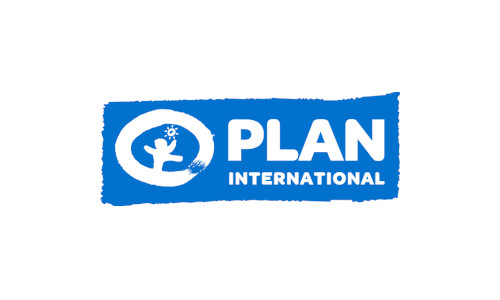In celebrating the day of an African child this year, we went to the Ngozi Mine slums where we screened two of our short films (Amacala 1 & 2), we spent the day with children living in that area and got to converse with them. The most disheartening fact is that they do not have clean water and sanitation which is detrimental to their health. This year’s theme is “Eliminating harmful practices against children, the children in key populations should not be left behind”.
Sustainable Development Goal 6 not being met in that area means that we have more children being vulnerable to various diseases which will then limit their growth. While some go to school, some are still looking for sponsors. Just as education is an empowerment tool, it should be of paramount importance to key populations because they are the most vulnerable.
Sexual and reproductive health services that include dissemination of information are a must because half of the teenagers there are already sexually active and even though mobile clinics frequent visit the community, there is still need for buttressing of information through different media. One of the girls said that they get bullied by their sexual partners and they are afraid of saying no to sex or even negotiate for safe sex because they will be beaten to a pulp. Another girl said the situation at their homes pushes them to indulge in sexual activity at a young age because they will be trying to fend for their families. A third girl said that they don't take pre and post prophylaxis pills because they don’t want to be judged. The three views show that there is need for advocacy and SRHR services because we cannot just watch and do nothing while their physical and mental health deteriorates. It is even more worrying when the parents in that area do not converse with their children regarding these issues.
The young women and girls in this community are victims of circumstance and socialisation and need a change of mindset. The parents are not to be blamed but they ought to be taught on how to approach their children and vice versa because in as much as different humanitarian groups can share information and make donations the children spend most of their time with parents so it becomes a problem if they are not empowered. The issue of child marriage, which I prefer to term “statutory rape” is rampant in that area. This is one of the harmful practices we are trying our best to fight. This puts the lives of children in that area at halt as they don't get to pursue their dreams of bettering their lives and breaking the shackles of poverty. They are impoverished even more because without education, the future is blurry including that of their children. Child labour continues to be a problem, instead of spending time at school, most of them will be working trying to help out at home.
As Amplifying Girls Voices, our help alone is not enough but if we could join hands, then we can help unleash their potential and make them leap to greater heights and the fight against harmful practices will be stronger than ever. Thabo Mbeki once said, “None dare challenge me when I say I am an African”, Happy international day of the African child
The ultimate goal of any sexual and reproductive health program is to ensure cost effectiveness, quality and sustainability. Reproductive health awareness is an educational approach which is both relevant and sensitive to many communities’ existing sexual and reproductive health needs and concerns. When working with community groups, a participatory approach that includes reproductive health awareness concepts is a simple non-threatening way for programs to quickly expand beyond pure information giving and exploring what reproductive health means to people.
Although many community sexual and reproductive health programs do not use the term reproductive health awareness, they use techniques similar to the reproductive health awareness education approach, when facilitating discussions about sexual or reproductive health. If reproductive health awareness is identified and included as one of the dimensions of future sexual and reproductive health programs, this will hopefully strengthen the program’s overall quality and effectiveness.
Most young people experience confusing and conflicting information about relationships and sexuality as they change from childhood to adulthood. This has led to an increase in the need for young people to access reliable information, which prepares them for a secure and fulfilling sex life. Properly implemented, Comprehensive Sexuality Education (CSE) responds to this need, empowering young people to make informed decisions about relationships and sex in world where gender-based violence, gender inequality, early and unintended pregnancies, HIV and other sexually transmitted diseases (STIs) pose serious risks to their health and well-being. Equally, the lack of quality, age appropriate, developmental sex education and relationship education may leave children and adolescents at risk for sexual misconduct and sexual exploitation.
CSE plays an important role in addressing the health and well-being of children and adolescents. Using a student-centred approach, CSE not only provides children and young people with age-appropriate education and categories on human rights, gender equality, relationships, fertility, sexual risks and health bans, but also provides opportunities for gender expression in a straight forward way, emphasizing values such as respect, inclusion, non-discrimination, equality, compassion, responsibility and reconciliation.
National healthcare systems rarely prioritize sexual and reproductive health (SRH), and the Covid-19 pandemic has made it extremely difficult to access SRH services because the current health regulations make it difficult for many people to seek care. In addition public health efforts to advise women and girls on how and when to seek SRH services are limited. Many SRH specialists are not able to function effectively during the epicentre of the pandemic, and funding is redirected to efforts to respond to COVID-19. Delays in SRH care will inevitably lead to other health problems, including an increase in the number of unintended pregnancies, illegal abortions that may lead to injury or death and sexually transmitted diseases.
Period poverty is a term that only started popping up in these last few years, however, it has played a vital part in the oppression of girls and women for many years but was just never paid attention to due to the stigma that exists around the topic of menstruation as well as internalized misogyny.
The term period poverty refers to the lack of access to sanitary products due to financial constraints. In as much as the main cause of period poverty is financial instability there is a lot more that contributes to it such as the stigma I mentioned above as well as periods being seen as too much of a taboo to speak about in communities making it harder for those who don’t have the access to sanitary products to seek help
Menstruation has been painted out as unclean and embarrassing all around the world. Unbelievable myths were drawn up to control women under the guise of their menstrual cycle in both traditional, cultural and religious settings. These myths created surrounding menstruation have evidently hindered women and girls from living their normal lives and taking part in numerous activities during their cycle due to the fact that they are seen as impure during this time.
It is estimated that 60% of girls and women are affected by period poverty in Zimbabwe’s rural communities. Girls miss a substantial number of days of school a year which automatically puts them behind their male counterparts. Most of these girls use the most unhygienic alternatives such as using cloth, leaves and cow dung. These alternatives leave the young ladies vulnerable to infections and often their local clinics don’t have the capacity to treat these.
The girl child has had to fight due to the stigmatized biological function that she has no power over. UNESCO states that 1 in 10 girls in Southern Africa will miss school during their period due to lack of sanitary products and eventually drop out, immediately putting young women at a disadvantage and hindering them from getting an education to better their life which is perpetuating a cycle of women depending on men. This as well contributing to the higher numbers of men that hold senior positions in the work place compared to women.
The effects of period poverty are carried out even into the work setting of young women’s lives. In an article senior reporter Evidence Chenjerai wrote “ARE MYTHS ABOUT MENSURATION PUSHING SOME WOMEN OUT OF ZIMBABWE’S MINING INDUSTRY” for the Global press journal, brought to light some of the myths about women’s periods that are being used to oppress women in the work place. The article was very shocking seeing as a certain woman’s very own workers did not want her to visit while they were working as they claimed that If she came while she was on her period the gold they were mining would disappear. It is also widely believed that menstrual blood is used in witchcraft
Change is possible if we work together as a community to eradicate the stigma that lurks around the topic of menstruation. We can achieve this by having open conversations including every member of the society that will enable better understanding when it comes to the topic of periods. Having the boy child understand, from an early age, that periods are normal and not embarrassing at all. These talks aimed at educating the society will fix the social side of period poverty however the finical side needs more work. The prices of pads are through the sky in shops seeing as most brands are imported. I believe it’s time as a country that we become self-sufficient in the production of pads in order to make them affordable
“While a woman sheds the blood of life each moon at menstruation, men can only shed the blood of death through warfare” - KATHA POLLIT
To all the young ladies reading this article there’s nothing unclean or embarrassing about your cycle and never let the community convince you otherwise. Embrace your biological make up.
In celebration of the International Menstrual Health Day, we say let’s create a world where no woman or girl is held back because they menstruate by 2030
#ItsTimeForAction
Slumber parties, sleepovers, all night parties, weekend gateways, you name it, everything goes; that is the impression I get from my peers who are lucky enough to have their parents living and working overseas, having to be under the care of guardians or siblings. In my case, however coming back home after 10pm would be the end of me, a total death wish, to be precise. My parents have strict rules that I would have to first pick my grave before I dare disrespect them. For them partying all weekend is not even something I could ever contemplate asking permission for. In some other cases it is a completely different story; surely Gogo or Aunty do not have a problem with it, after all what can she do?
Only a small number of children in my neighbourhood live with their parents. The majority are leading carefree lives because they live with guardians without the legal standing to some rules. It’s fairly understandable that circumstances are different but what are the odds of them not falling through the gutters of peer pressure? Grandparents, aunts, uncles, aunts and even cousins are the most common guardians. There are many children who sneak out of these homes to indulge in risky behaviours at night; that is very much easy if one is staying with their Gogo who sleeps at 9pm. There is a distinct difference between the ones staying with parents and the ones staying with guardians. Most children tend to disrespect and disregard relatives’ rules with the “you are not my parent” attitude.
There is also the case of child headed families, whereby the oldest sibling is the head of the house, even as young as 18 years old. And how likely are they to correct their younger siblings? More so, which standpoint will they be correcting them from? What parenting skills does one have at such an age anyway? These houses then become chill spots and hot spots for Vuzu parties, a topic that needs an article of its own. Due to the limited knowledge about decision making, teenagers are a danger to themselves, without parents around anything goes and everything goes wrong. With free funds available, most of these children fall prey to drug and substance abuse. More dangerous is how they might abuse each other in these setups and it might go unnoticed. What is worse is when the parents actually don’t send the money at all or regularly, leading to child prostitution and child labour.
Not all guardians act in good faith. Some abuse their wards in a lot of ways, leaving them scarred for life. They might also use the money being sent by parents for their personal selfish interests. Ask yourself why is your aunt letting you party till the early hours of the morning. Why does she let you go to weekend gateways? What good are you going to be to your parents when you fall pregnant at that party? Some relatives are enjoying the riches from your parents in the diaspora, but they don't want what's best for you. Work hard! Look after yourself.
In a bid to look for greener pastures and give their children a better life, parents have to make some of these hard decisions. Their results range from extremely successful children to total failures. There is no one answer to it all, it is then up to everyone involved to do what is best for the children, and for the society to remember that is takes a village to raise a child!
Our Partners
Address
National Gallery Bulawayo
75 J. M. N. Nkomo / L. Takawira Avenue
Bulawayo
Zimbabwe
Email: [email protected]
Phone: 029 2263928
Office Hours
Weekends: Closed
Public Holidays: Closed




